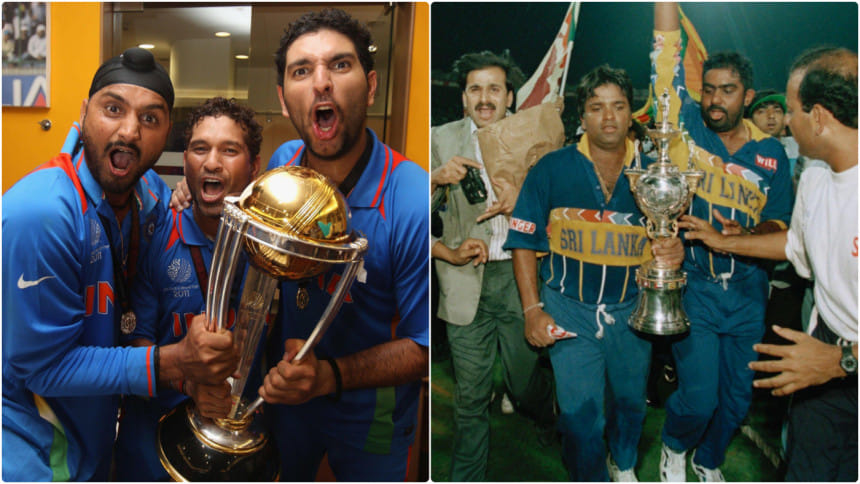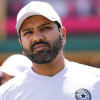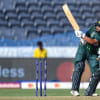Will familiarity aid subcontinental powerhouses?

All participants in the 2023 World Cup in India are well aware that in big events, teams tackle the conditions just as much as they play their opponents and the pressure posed by the competition.
A World Cup, on the other hand, is nearly always unpredictable. Despite their experience, England have only won the competition once: the last ODI World Cup in 2019, which they hosted. Will India and other subcontinental teams have a competitive edge this time?
"Subcontinental teams always have a better chance of playing with the conditions. India and Pakistan would be commendable sides while Sri Lanka, Bangladesh and Afghanistan can be dark horses and do something. You never know," said Sri Lanka's spin wizard Muttiah Muralitharan while making a prediction on a recent YouTube show with CricketNext.
"Outside of Asia, the two strongest sides are Australia and England. So, Australia, England, India and Pakistan can be the four [semi-finalists] but cricket is unpredictable. Favouring these four but something can change," added the ICC Hall of Famer.
Analysts will thus put forth data to the table while experts, fans and the media will bring particular metrics to predict a winner, but that unpredictability of a World Cup would remain. Had the World Cup been in Sri Lanka or Pakistan, the conditions would not have warranted such scrutiny. India, though, is astoundingly large and the designated venues have varied qualities despite being subcontinental tracks. In Sri Lanka for instance, wickets take turns in almost all the venues. In Pakistan, the wickets produce a lot of runs and are flat in nature.
When it comes to India, Dharamsala for instance, is known to procure swing and seam for pacers. On the other hand, venues such as those in Kolkata, Ahmedabad or Chennai have been known to produce big runs. There are others where the ball holds up, helping spinners, while some see big turns. Thus, the ability to play spin would be handy but not being prepared for different conditions can be disastrous.
The International Cricket Council (ICC) has a few standards for how wickets should be in ICC events. Thus, sporting tracks would also come into the equation here. But talks of conditions favouring certain sides cannot be ignored. After all, it took over two decades for India to win their second title -- in Sachin Tendulkar's swansong in 2011 when the tournament was jointly hosted by India, Bangladesh, and Sri Lanka -- after their first triumph in 1983.
With five World Cups in the bag, Australia are the dominant force in ODI's grandest spectacle. And yet, four of their titles since 1999 came outside of the subcontinent -- in conditions more suitable to their merits. Their last win came in 2015, when they co-hosted the tournament with New Zealand. Sri Lanka's only World Cup triumph till date also arrived in the subcontinent in 1996.
India's players know every inch of the venues this time around and are well used to the evening dew that makes the ball slippery in the second innings.
However, courtesy of India's T20 franchise tournament, the Indian Premier League, many stars from outside of the subcontinent will not find the conditions as tricky as they did in previous eras.
According to analysts and cricket authors Ben Jones and Nathan Leamon, who wrote 'Hitting against the spin', three factors back teams who succeeded at World Cups: average scoring rates 24 months before the event, winning form of the past two years and a good match-experience distribution throughout the 15-member squad.
England pack a punch with scoring rate this time around while Pakistan boast the best win-rate. England had dominated the experience category at the 2019 event, having had nine players with over 75 caps in the squad. This time, they have seven. India, on the other hand, are the most-experienced side at the 2023 edition with eight such experienced campaigners in their ranks.
England also boast the best scoring rate in both Powerplay and 11-40 overs phases while South Africa lead the death-over phase with more than 8.5 runs in the last 10. England also top the best scoring-rate against spin in the 11-40 overs period leading up to the World Cup. Yet, they do not lead in all categories. Thus, that unpredictability remains.
Too many factors to wrap one's head around? Perhaps it would be wise to just sit back and savour what happens as another major event unfolds over the next month and a half.

 For all latest news, follow The Daily Star's Google News channel.
For all latest news, follow The Daily Star's Google News channel. 









Comments